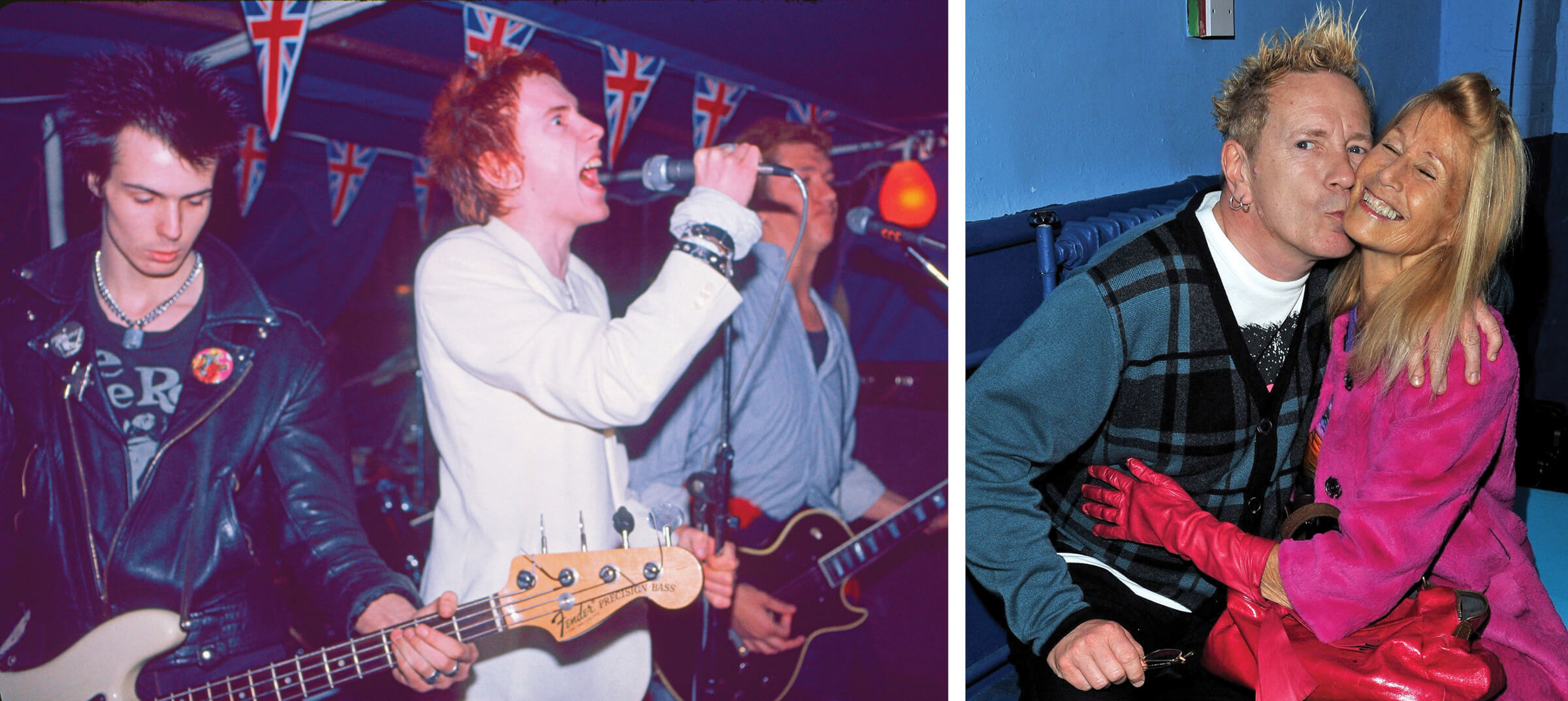Q&A with John Lydon
“YOU COULDN’T WRITE THE SONGS I DO IF YOU DIDN’T CARE.”
—JOHN LYDON, 67, WAS THE SINGER IN THE SEX PISTOLS (AS JOHNNY ROTTEN) AND SINCE 1978 HAS LED PUBLIC IMAGE LTD. RECENTLY, HE WAS FULL-TIME CAREGIVER FOR HIS WIFE, NORA FORSTER, WHO HAD DEMENTIA AND DIED IN APRIL AT AGE 80.

What attracted you to Nora?
Both of us are the kind of people that don’t let others tell us what to do and think. The longevity of our existence together proves the point—45 years–plus. It seems like it whizzed by so wonderfully.
What was Nora like?
Outgoing, highly entertaining, wonderful sense of humor. She used to race cars when she was young, which was a major problem for her family, because in Deutschland, that kind of female independence was looked down on. She broke every rule in the book and dressed so gorgeous, like she was in a film noir. She was physically very assured of herself and mentally astute. I’m an introvert who escapes from his self-inflicted prison from time to time, with a vengeance. They say opposites attract!
When was she diagnosed?
About six years back. Before then, I didn’t know what was going on. “What do you mean you don’t know where the car keys are?” We were driving along the highway, and she stopped dead in the middle of it, because she didn’t know where she was. I was screaming, “A lorry [truck] could rear-end us at any moment!” I had to realize there was a problem here that I had no answers for. I took her to UCLA Health, because they have an Alzheimer’s center, and then we knew that slowly but surely, it was going to get worse. And it did.

From left: John Lydon sings with the Sex Pistols in 1977; with wife Nora Forster
How did you remain positive, even as she declined?
When I was young, I had meningitis and I lost my memory for four years. That gave me the tools to be able to handle what she was going through. I recognized those moments in her eyes when she was baffled and nothing made sense.
What did you do?
I found a great way of getting her out of those things, not by asking questions but through humor. I’d say, “Oh, your nose is big!” And she would burst out laughing. It changed the subject and got her back to where she needed to be. We spent several years laughing at the world together. We’d sit and watch The Real Housewives of Beverly Hills, and she’d laugh at their outfits and the preposterousness of their behavior. It thrilled her. Of course, it reached its inevitable conclusion, but the last several years were probably the most fantastic experience that both of us could have had.
Sometimes in advanced stages, patients can become content. Did you see that in Nora?
Yeah. Nora died happy, I’ve got to say. She knew I loved her. She never forgot my name, by the way, even though the powers that be all promised me that would not be the case.
Were you able to find time for yourself while caring for Nora?
It was exhausting, yeah, but so what? We hired help to come in two days a week. Nora got friendly with some of them, and they could do womanly things together, which is lacking in me. I can’t do her makeup. She’d end up looking like Alice Cooper!
For people who view you as an angry punk rocker, the role of caretaker might be surprising.
You couldn’t write the songs I do if you didn’t care. I’ve never based my music on fantasy. It’s always based on an experience. It was difficult to watch Nora’s eyes fade when she died. I knew she was thinking of me in those last few seconds. A fantastic gift, and sad as well. I’d rather have lived the life we led than not have that in my existence at all.
Are any of the songs on Public Image Ltd.’s new album, End of World, about Nora?
Yes, “Hawaii” is my love song to her. The refrain in the song, “Aloha,” means hello and goodbye. She knew what the song was, but it kind of upset her, the sadness of her demise.
It sounds like Nora would not have wanted you to write a maudlin song about her.
Absolutely not. She’d have been horrified. Horrified!
—Interview by Rob Tannenbaum